
Fruit trees can be one of the best additions to any landscape. They offer shade and color in addition to healthy, delicious food. Many fruit trees can be grown in Southern California. But the chilling hours which some fruit trees require disqualifies them from being grown here, especially as our climate continues to get hotter and drier. Consider adding more adaptable fruit trees to your landscape that can withstand increasingly arid conditions. The following three plants are fast growing and offer interesting fruits that are not widely available in grocery stores. They have proven durability and are well suited to growing in warm, dry climates.
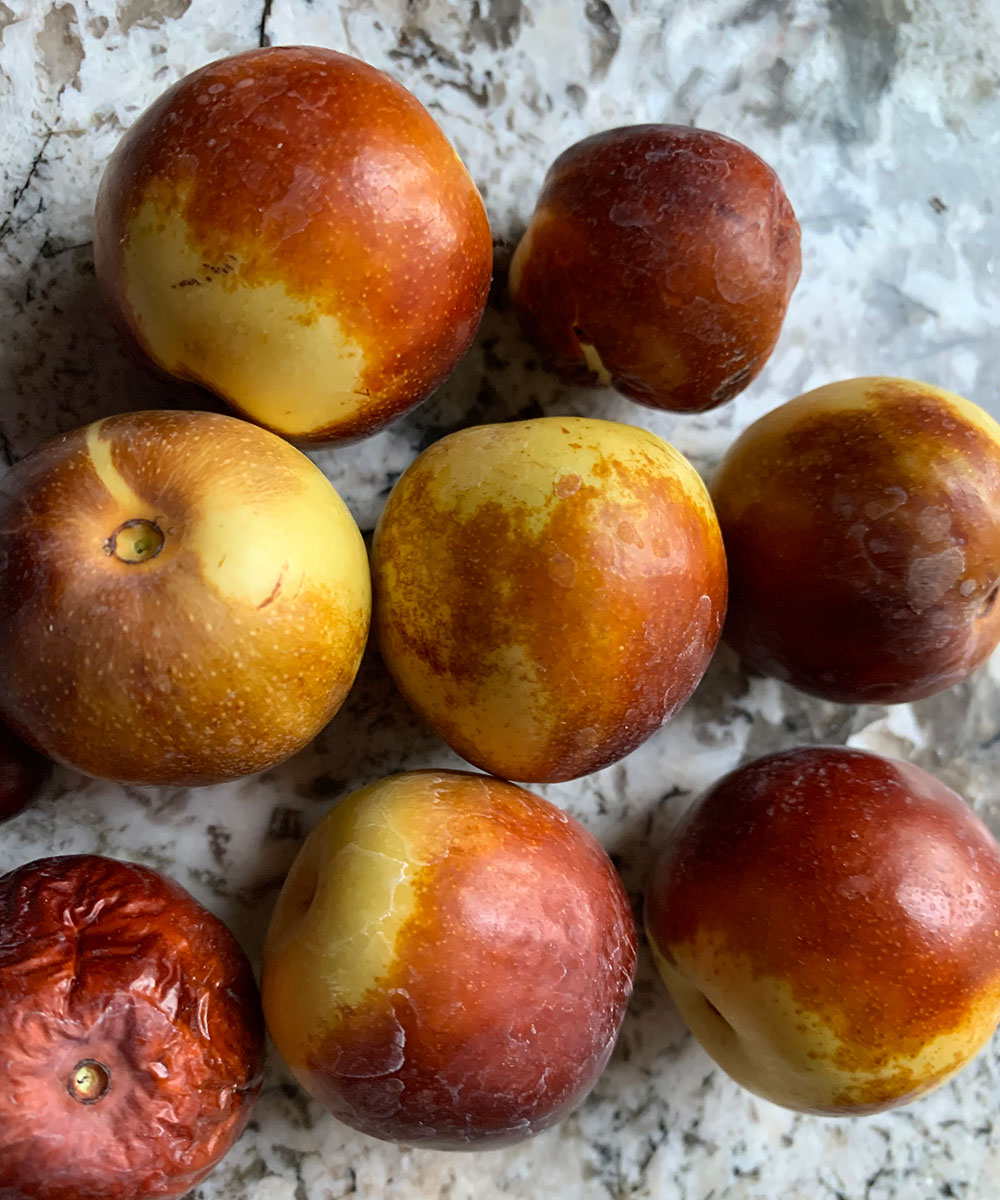
Jujubes produce unique fruit among graceful foliage
Jujube trees are more popular in other countries than they are in the United States. They are native to temperate climates in southeastern Europe and Asia with poor soil and little rainfall, making them perfect for Southern California. The trees can grow 15 to 30 feet tall and just as wide. The fruit is small and round, and it tastes like a cross between a crispy apple and a sweet date. A very adaptable tree, jujube does not have showy blossoms but sports a graceful, slightly drooping habit of growth. It grows well in full sun, doesn’t require any fertilizer, and is not commonly attacked by pests. Although the fruit grows in between thorny branches, it’s worth the effort of careful picking.
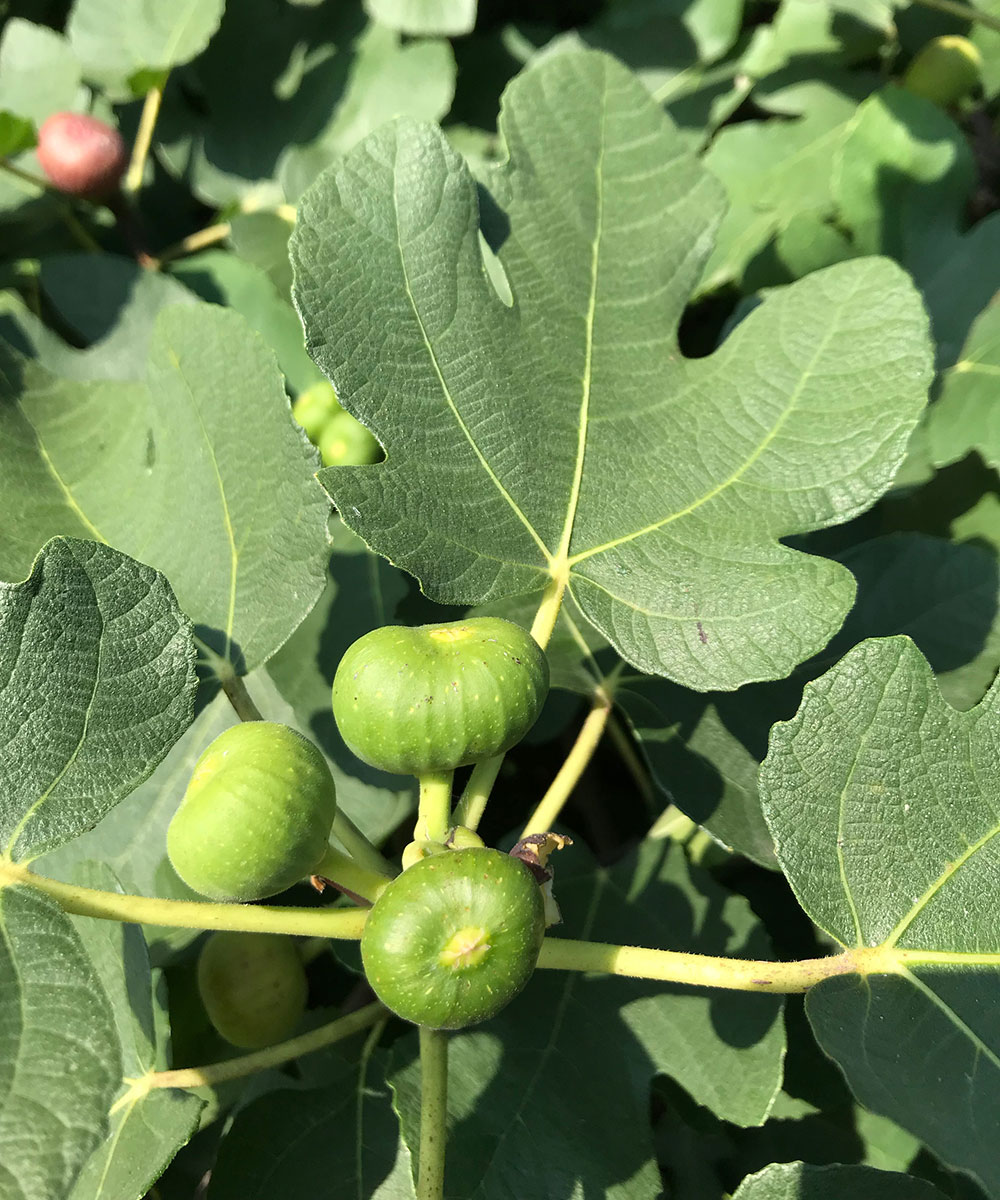
Figs are easy to care for and come in all shapes and sizes
There are a number of different varieties of fig, each with green or purple fruit. Figs can range from 6 to 30 feet tall and just as wide. These are curious plants that have no visible flowers. Blooms open in the interior of the fruit and are pollinated by tiny wasps. The seeds that develop inside create the crunchy texture. Figs are easy to care for. It’s best to fertilize them when the tree breaks into leaf in early spring. When you see fruit starting to grow, they can be fertilized again. Figs will give you plenty of fruit even without fertilizer, but for larger and juicier crops—particularly in areas with poor soil like inland Southern California—it makes a difference. Figs handle drought well since they are native to the Mediterranean and western Asia, but they also produce better fruit with some supplemental summer irrigation. They can also grow in either full sun or partial shade. Two tried-and-true varieties for Southern California are ‘Mission’ and ‘Brown Turkey’.
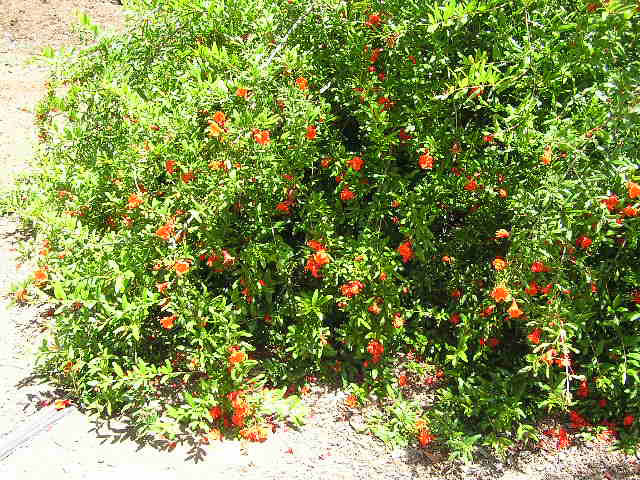
Pomegranates have stunning orange-red flowers and produce tons of fruit
Pomegranates may not be the easiest fruits to eat, but they offer excellent health benefits and taste great! The plants also offer ornamental interest with their big orange and red flowers and their large, round fruits that dangle like Christmas tree ornaments. Pomegranates are shrubs and grow in a busy habit with many low-hanging branches. They can grow 6 to 20 feet tall and almost as wide, but most will grow here on the smaller side of that range. Pomegranates are native to arid climates in middle to western Asia. They are very drought tolerant and love full sun. But just like jujubes and figs, they appreciate a little extra irrigation in the summer.
If you were thinking of planting some fruit trees this year, now is the time to try one or more of these tough plants. All three are far less demanding and more drought tolerant than other, more commonly grown fruits like apples, pears, and stone fruits. Keep in mind that it is likely to become warmer and drier in Southern California during this next decade. Strong, healthy fruit trees should last for many years and adapt to changing conditions. Adding one of these to your landscape will increase the longevity of your garden’s beauty and productivity, even as the weather continues to change.
—Jane Gates is the owner of Gates & Croft Horticultural Design in Los Angeles and the author of All the Garden’s a Stage: Choosing the Best Performing Plants for a Sustainable Garden.
Fine Gardening Recommended Products
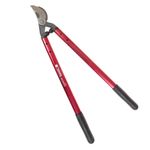
Corona High Performance Orchard Loppers
Fine Gardening receives a commission for items purchased through links on this site, including Amazon Associates and other affiliate advertising programs.
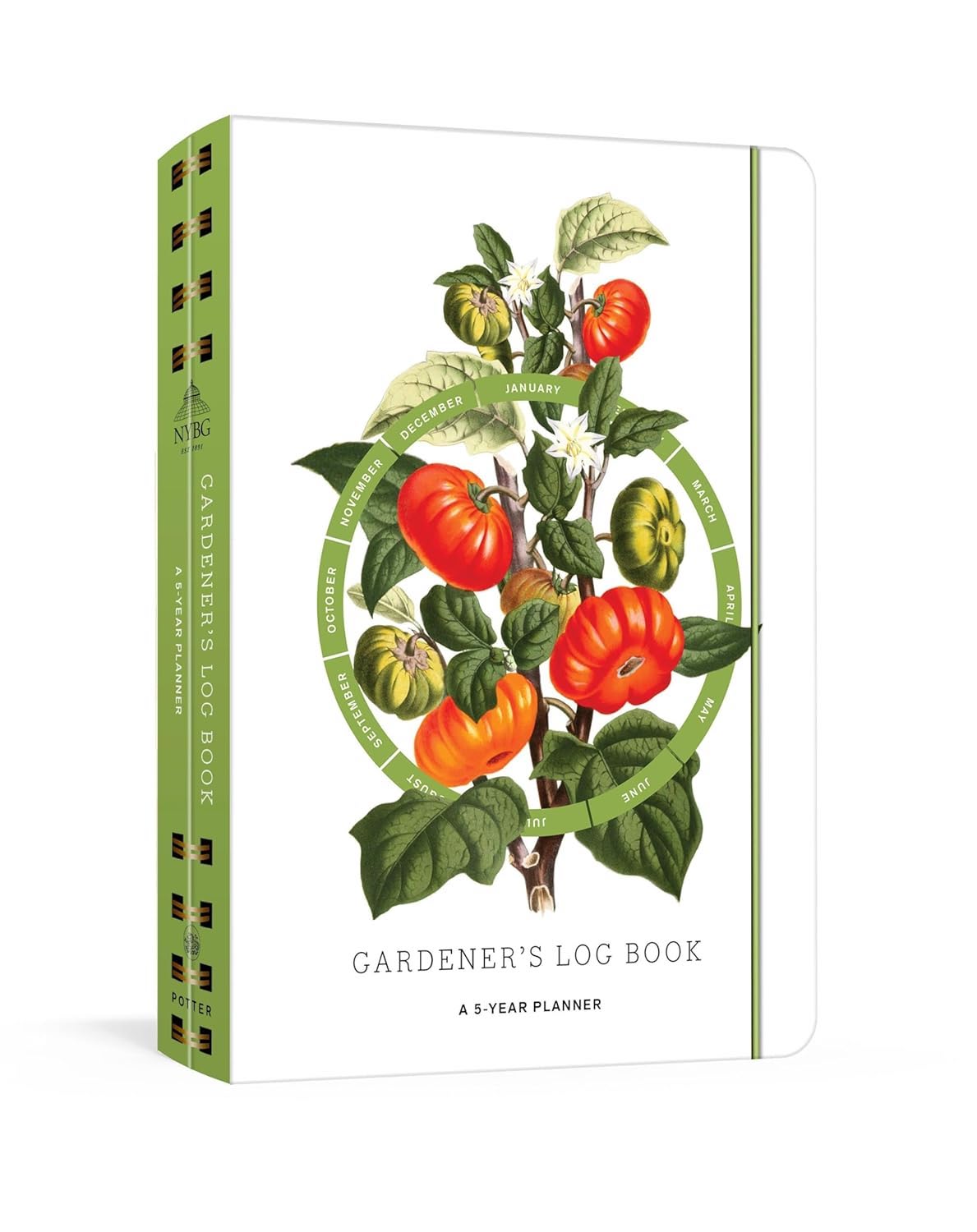
Gardener's Log Book from NYBG
Fine Gardening receives a commission for items purchased through links on this site, including Amazon Associates and other affiliate advertising programs.
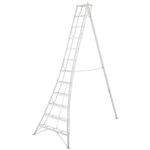
Hasegawa Tripod Ladder
Fine Gardening receives a commission for items purchased through links on this site, including Amazon Associates and other affiliate advertising programs.


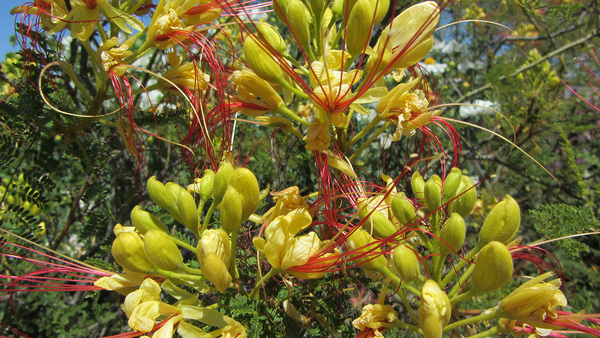



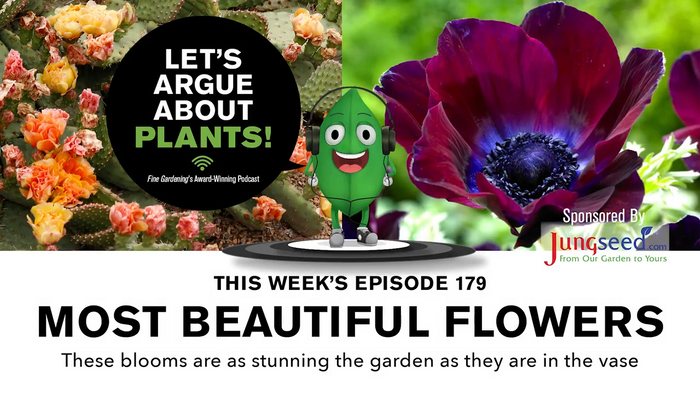

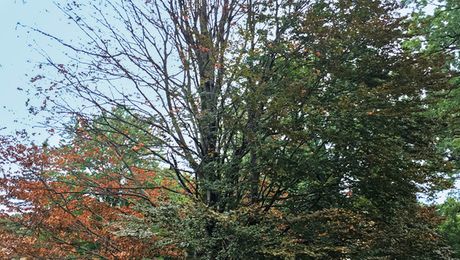










Comments
Log in or create an account to post a comment.
Sign up Log in